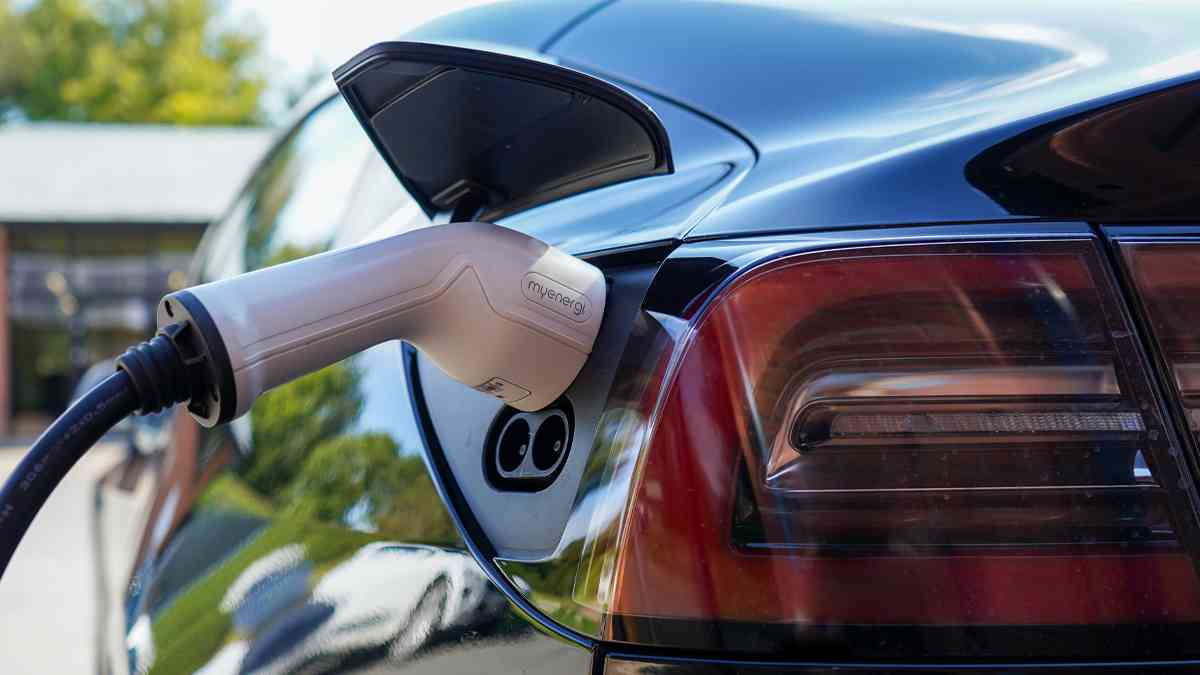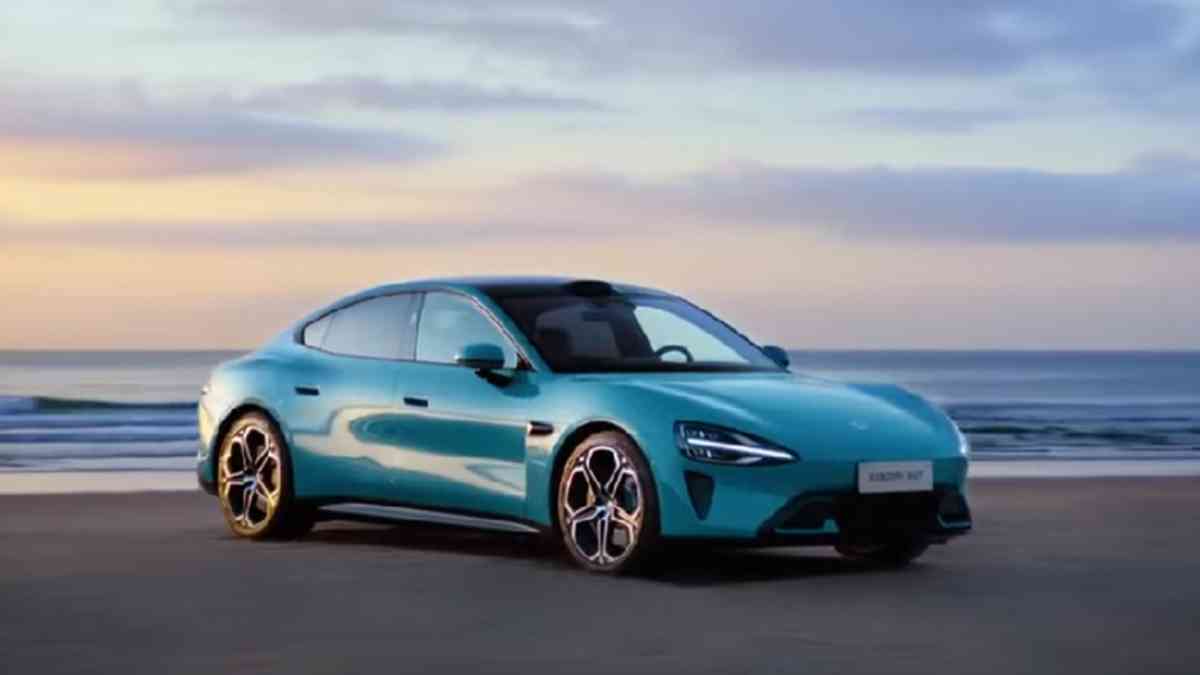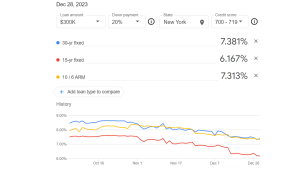Xiaomi, the famed tech mammoth, has set its sights on a new horizon – electric vehicles (EVs). In a grand unearthing event held on December 28th, Xiaomi’s co-founder and CEO, Lei Jun, introduced the world to the SU7, the company’s first electric vehicle. With intentions to compete with Porsche and Tesla, Xiaomi is making a substantial bet on the EV industry.
The SU7, short for Speed Ultra, represents Xiaomi’s entry into the electric vehicle request. Batteries will power this EV from two leading Chinese manufacturers, Contemporary Amperex Technology and BYD. The choice of battery depends on whether the SU7 is equipped with a single or binary motor configuration.
Xiaomi is investing a stunning $10 billion in the request for electric vehicles (EVs). This occurred after the organization established a reputation in the market for inexpensive smartphones. Lei Jun, the CEO of Xiaomi, is undertaking one final entrepreneurial risk. He wants the company to have as much success with electric cars as it has with smartphones.
Changing Landscape and Challenges
Since publicizing its EV plans in 2021, Xiaomi has encountered changes in China’s nonsupervisory geography and added competition. Beijing has assessed limits on manufacturing permits for new request entrants, forcing Xiaomi to unite with the state-possessed Beijing Automotive Group to produce its EVs. Also, state subventions for EV buyers ended in 2022, making it a more competitive request for Xiaomi.
Lei Jun has set high expectations for the SU7, stating that Xiaomi aims to produce a dream auto that can compete with Porsche and Tesla. The company intends to match the performance of Porsche’s Taycan Turbo and the technological features of Tesla’s Model S. While the Model S and Taycan are priced significantly advanced, Xiaomi aims to place the SU7 in a medium price type, though the exact pricing remains undisclosed.
Competition in the Chinese EV Market
In the Chinese EV request, Tesla and Porsche have made their presence known, with Porsche delivering about 3,600 Taycan family EVs in 2023. Xiaomi’s SU7 is set to contend with these established players. Despite Tesla’s and Porsche’s success, Xiaomi believes it can separate itself with superior motor technology and manufacturing ways.
Innovative Manufacturing
Xiaomi’s manufacturing process for the SU7 involves gigacasting, a fashion innovated by Tesla. They’ve developed a 9,100-ton machine known as “hypercasting” to streamline products. This innovative approach is anticipated to contribute to the SU7’s performance and quality.
Xiaomi’s expansion into the EV request comes as the company seeks to diversify its immolations. Before the September quarter, Xiaomi faced deal declines in the impregnated smartphone request. The EV adventure allows Xiaomi to explore new avenues and challenge not only traditional automakers but also emerging players like Huawei Technologies.
Lei Jun’s fidelity
Lei Jun’s commitment to making the SU7 is apparent in his expansive exploration, having tête-à-tête driven 150 different cars. This fidelity underscores Xiaomi’s determination to succeed in the EV industry.
Xiaomi’s advertisement of the SU7 has had an impact on the stock request. While Xiaomi’s shares originally rose 4.1 after the advertisement, they latterly fell 0.5 on Thursday autumn, reflecting the query and competitiveness of the EV request.
Lei Jun has emphasized that Xiaomi will not calculate on undercutting challengers to gain traction in the EV request. Rather, the company plans to concentrate on delivering a high-performance, quality product that can stand on its own graces.
Xiaomi’s CEO has also shown respect for challengers in the EV industry, admitting the benefactions of companies like BYD, XPeng, Li Auto, and Huawei in introducing China’s new energy vehicle industry. This cooperative spirit underscores the participation in advancing electric mobility in China.
Pricing and Vacuity
While Xiaomi’s sanctioned pricing for the SU7 is yet to be perfected, leaks and enterprises suggest an estimated starting price of roughly 27,400 in China, with global prices anticipated to be advanced, starting around 35,000. Xiaomi plans to offer three variants of the SU7, with pricing variations grounded on features and indigenous factors. The SU7 is set to launch in China in mid-2024, with the sanctioned pricing advertisement anticipated near the launch date.
Xiaomi Electric Cars Features:
| Feature | SU7 | SU7 Pro | SU7 Ultra |
| Model type | Sedan | Sedan | Sedan |
| Release date (est.) | Mid-2024 | Mid-2024 | Mid-2024 |
| Exterior design | The sleek, modern coupe | The sleek, modern coupe | The sleek, modern coupe |
| Interior design | Minimalist, Digital | Minimalist, Digital | Minimalist, Digital |
| Seating capacity | 5 | 5 | 5 |
| Drive train | Dual-motor electric | Dual-motor electric | Dual-motor electric |
| Peak power | 220 kW | 275 kW | 495 kW |
| Top speed | 210 km/h | 210 km/h | 265 km/h |
| Range (est.) | 500+ km | 500+ km | 500+ km |
| Battery technology | CTB (Cell-to-Body) | CTB (Cell-to-Body) | CTB (Cell-to-Body) |
| Operating system | HyperOS | HyperOS | HyperOS |
| Key features | Autonomous driving assistance Large infotainment system Over the-air software updates Lidar sensor (optional) Smart cabin integration CTB battery technology for increased space | All SU7 features Higher performance More advanced autonomous driving features | All SU7 Pro features Most powerful motor option Highest top speed Potentially additional luxury features |
Xiaomi’s incursion into the electric vehicle request represents a bold move by the tech mammoth, with Bournes to contend against established players like Tesla and Porsche. The SU7’s performance, innovative manufacturing, and Lei Jun’s fidelity are all reflective of Xiaomi’s commitment to making a mark in the EV industry. As the request evolves and competition intensifies, Xiaomi’s trip into the world of electric vehicles is sure to be nearly watched by both consumers and industry interposers.

Xiaomi’s ambition to become a significant player in the electric vehicle market isn’t only an instigative development for the company but also a significant step in the development of the automotive industry in China and beyond.






















+ There are no comments
Add yours